#sun tzu famous quotes
Explore tagged Tumblr posts
Video
youtube
Sun Tzu's Ancient Life Lessons Men Learn Too Late In Life
#youtube#best art of war quotes#33 strategies of war quotes#never trust a friend who is silent sun tzu#sun tzu funny quotes#sun tzu famous quotes#funny sun tzu quotes#war quotes sun tzu#best sun tzu quotes#sun tzu art of war quotes#art of war quotes#sun tzu quotes
0 notes
Text
Sun Tzu's Quotes from "The Art of War" are a source of timeless wisdom and motivation.
We have just launched our very own YouTube channel dedicated to Motivational Quotes. We share powerful words of wisdom, uplifting messages, and practical tips to fuel your motivation and help you achieve your goals. Please support us to grow our YouTube channel. Please click below link to subscribe to our channel.
1 note
·
View note
Note
Leverage character asks: 1,3,17,45 (your choice on character)
thank you for the ask & for fueling my leverage obsession lol <3
1. Canon I outright reject
honestly i love the character development on leverage, even when it means the character has some negative traits or weaknesses or something. hmm… i think one thing i disliked was hardison being a super bad tipper (some ep in s5). he doesn’t care about workers? particularly after five years of leverage? idk.
i also wish eliot didn’t seem to like cops so much, but thats more of a gripe with the show’s/showrunners’ attitudes towards police.
3. Obscure headcanon
sophie: that she’s trans! love that hc. shout out to @transsophiedevereaux. also that sophie had a drunken one night stand with maggie, which is actually (word of god) canon rather than a head canon, but seems to be rarely mentioned.
nate: nate x sophie x sterling… it’s happened at least once.
parker: so many!! but the one i’ll share is that. uh. she’s probably killed someone. pre-leverage, she’s known to be dangerous for a reason, and she’s been in a lot of awful situations unfortunately. she would probably have done so out of necessity, it might even have been self defense, but yk. it’s still killing someone. and no, i don’t mean the pilot flashback - according to word of god (ie john rogers) she probably didn’t kill her foster parents when exploding their house. anyway, i’ve seen some cool fics about this idea and discussed this topic w @laser-tripwires and i think it’s really interesting for a variety of reasons, but i won’t list them here bc this is already getting so long lol.
hardison: that he still secretly adds to nana’s income somehow (he canonically paid off her medical bills), that he plays D&D, that he likes [insert media beloved by geeks that i don’t really know much about, but i love that people hc him as enjoying the things they enjoy so much].
eliot: my own silly hc that many of his scars are actually from kitchen accidents rather than fights lol
17. Quotes, songs, poems, etc. that I associate with them
gonna answer this one for sophie only, cause i have quite a few answers just for her!
1) i saw a gif set of sophie once with the lyrics of "thief" by imagine dragons, and it was a really gorgeous gif set and the lyrics fit very well.
2) yk the fable "the scorpion and the frog"? at the end of s1, she seems to excuse her actions (conning the team) like the scorpion - that it’s just in her nature, lying is who she is, she’s a thief and this is what thieves do, etc. additionally, it’s what sterling says about her, that her behaviour was predictable because it’s "who she is".
3) the gambler by kenny rogers. bc the chorus is canonically her life philosophy lmao (according to the last dam job).
45. Their favorite celebrity
sophie: canonically, db cooper. she idolises him in the db cooper job lol. poster above her bed as a teenager etc etc.
nate: man, his would be oddly specific im sure. like he reads war strategy books, maybe sun tzu. or perhaps a chess grandmaster, like bobby fischer. i don’t know much about war strategists nor chess players, so if anyone does, then maybe you can suggest a more specific person.
hardison: i know he loves star trek, doctor who, star wars - im simply not pop culture savvy enough to know who his fave actors from those shows might be. BUT. i think it would be funny if his fave celebrity was wil wheaton (who was in star trek, and who, of course, played cha0s in leverage). also, wil wheaton is famously into D&D, video games, comics, and other "geek" stuff that hardison proudly enjoys too. hardison does not see the resemblance btwn wheaton and his nemesis, no idea what you’re taking about.
eliot: i think he would have people he looks up to or thinks are incredible, who are celebrities but only in a very specific field. like a renowned chef, but not a "celebrity chef" as in one who’s on tv. i mean like a chef who is famous among chefs, for being one of the most talented in the world.
parker: i feel her definition of celebrity would be somewhat different to most people’s. plus, her knowledge of the world is deep but narrow - she knows everything possible about thievery and anything even tangentially related (probably a decent amount of physics, for example), but pop culture? not so much. she later gets into stuff like dr who via hardison though, so perhaps the actor of the current doctor, ncuti gatwa. now, there’s also famous thieves, BUT they’re generally only famous because they eventually got caught. parker does not get caught. she would not idolise someone who ended up caught. maybe the thief of an unsolved heist. honestly, parker is famous in the leverage crime world. so. herself? not that she enjoys being a celebrity lol.
17 notes
·
View notes
Text
Character Thoughts on Lawrence Limburger.
I had some thoughts about Lawrence Limburger from Biker Mice from Mars. I have finished watching first season and IDK it got me thinking how vile the man is.
So he's a really good business man and politician in the worst way possible. If he was human villain he would be quoting Sun Tzu or some modern age Steve Jobs I bet. Because all those pretentious villains do.
His schemes most of the time appear to be acts of good will and philantropy which is the worst kind of villain. To public he is benevolent if not awfully stinky and ridiculous man. His company most likely has an excellent working conditions as he tries to maintain a certain image with the human public. Plus the constant destruction of his tower he HAS to have great bonuses to keep people from quitting. Like in the episode introducing the Loogi Brothers, he took time to personally answer the calls from angry office workers. Illusions of good persona are so importat to him, otherwise how else will you steal Earth right from under humanity's nose?
I mean I am certain he must have bribed his way into ruining Chicago to the state it is now to a certain degree but I doubt anyone would be able to track it to him directly or if they did they probably got disposed of. I would have loved an episode with a news reporter doing an investigation on some suspicious activity and finding Limburger got his fingers in it and then running into Mice while running for their life.
I bet while some in Chi-Town, those who worked with Biker Mice in the past, would see them as heroes those who don't see them as menaces most likely, frequent destruction of property is certainly a reason to dislike them. I bet construction companies love them tho lol. The constant rebuilding of Limburger Tower must be making them a bank.
I think it's interesting how the show must look to the regular Chicago person from the outside. We only see Mice as heroes bc that's how the show presents it.
Great Cheese is cunning, two face and slimy, villain that if not for the rules of the genre of the show would be a serious threat which explains and gives chilling insight on just how easily Mars got stripped mined in the first place. Just look at all the social projects evil schemes he presented to the public:
solar power plant in exchange of the outdated (?) sewage system/cleaning plant
free services for evacuating the city during earthquakes
free cleanup from a toxic spill (nevermind it was destroying the park in the process and the toxins were his inventions - the public didn't know that or other options of how to deal with it)
a new subway tunnel
This is what the public knows of him. We have the knowledge of Limburger being a land stealing intergalactic oligarch (regular American businessman LOL) because the show wants us to know this. To a regular person who only hears about him from the news he's next best thing in the world. No surprise he managed to stay on top in Chicago until Biker Mice came bc they are the only ones with first hand experience of his "benevolence" always having a flip side. If not for his cartoonish looks and behaviour in the show he could have been on Xanatos level of villain but he is played more for gags rather than serious tone of Gargoyles.
But he keeps losing (thankfully). The difference here between the villain and heroes is the most classic one. His closest employees have no loyalty to him unlike Biker Mice who rely heavily on their loyalty to each other and trust each other (the famous Power of Friendship and unspeakable voilence lmao). Like the Great Cheese himself often states - "it's so hard to find good help these days".
To sum it up - Limburger is skilled politician/business man and if the show had any other tone than parody he would have destroyed Earth in like a month (exaggerating here). Fortunately for the show's world Mice are the Mongols to Limburger's Roman Empire and firmly thwarth all of his schemes.
Because Friendship and unspeakbable violence LOL.
Thank you for coming to my Ted Talk. Also I am really curious how the Ryan Reynolds reboot gonna portray the Stinky Cheese.
#biker mice from mars#lawrence limburger#limburger bmfm#bmfm#character analysis#modo#throttle bmfm#vinnie bmfm
22 notes
·
View notes
Text


Sun Tzu
Sun Tzu IS ACTUALLY AN HONORIFIC TITLE GIVEN TO Su-N Wu (c. 544 BC-496 BC), the author of The Art of War. There is some debate about the original title of this famous text, which some of you may be interested in because it seems that the author intended to suggest martial arts, rather than war. In any case, Sun Tzu looked at both the philosophy of conflict as well as the conduct of military operations, especially maneuvers and combat, making his writings as they stand useful to anarchist rebels. The Art of War is an important text and should be widely read by potential insurgents. This isn’t to say that Sun Tzu was an anarchist, rather that his writings are poetic and open ended enough to be used by just about anybody interested in being victorious in “combat” or “conflict”. This means that many, many people have read them, including your adversaries. Therefore, to succeed, study this text among others, and aim to be on equal footing with your opponents, at least in theoretical knowledge.
The Art of War is widely available, but I thought I’d share some of my favorite quotes from one of the translations:
Those skilled in warfare establish positions that make them invincible and do not miss opportunities to attack the enemy. Generally, in battle, use the common to engage the enemy and the uncommon to gain victory. Those skilled at uncommon maneuvers are as endless as the heavens and earth, and as inexhaustible as the rivers and seas. To be certain to take what you attack, attack where the enemy cannot defend. To be certain of safety when defending, defend where the enemy cannot attack. Subtle! Subtle! They become formless. Mysterious! Mysterious! They become soundless. In armed struggle, the difficulty is turning the circuitous into the direct, and turning adversity into advantage. Therefore, if you make the enemy’s route circuitous and bait him with advantages, though you start out behind him, you will arrive before him.
#freedom#ecology#climate crisis#anarchism#resistance#community building#practical anarchy#practical anarchism#anarchist society#practical#revolution#daily posts#communism#anti capitalist#anti capitalism#late stage capitalism#organization#grassroots#grass roots#anarchists#libraries#leftism#social issues#economy#economics#climate change#climate#anarchy works#environmentalism#environment
3 notes
·
View notes
Text
OH MY GOD
Ok so I recently started getting really into the idea of a role swap au and I thought of something which was a perfect crossover of 2 of my biggest hyperfixations rn. The Hannibal books and doctor who
So I was thinking of what capaldi!master would be like and I thought it would be perfect if he was like hannibal Lecter. Cold, calculating, terrifyingly intelligent, and oh so cruel.
The gomez!master would be super geeky and hippie-ish but with a hyperactive spark to her. Like she wears lots of tyedye and her hair is like michelle Gomez's natural frizzy curls. Like if the costume designer just took a blow dryer to Michelle's hair and said "done!" For reference this is what her natural hair looks like.

Shed wear super baggy puff pants and loose colorful shirts and maybe some wacky glasses or hair accessories.
Now the capaldi!master. Hes a really interesting beast.
I imagine his hair to be a lot like peter when he played in The Devils Hour. Sorta more sharp and sculpted than his doctors hair.

I imagine hed be very much like hannibal Lecter, specifically Anthony Hopkins' version. He stands inhumanly still, almost never blinking. And when he does blink, its robotic, almost reptilian. He walks in a way that looks like hes floating, his body never bobbing in the slightest.
I imagine hed be very interested in dance and ballet, like waltzes and stuff like that. He would have incredibly graceful body language, to an almost unnatural degree. Hed be obsessed with the fine arts and classical media. Hed like to quote Shakespeare a lot as well as other famous historical writers like Plato and Socrates. He enjoys quoting Sun Tzu's The Art of War, Macbeth, Othello, and Hamlet among many philosophical texts. He especially likes quoting Frederick Nietzsche cus of course this edgy bastard would.
He wears shoes that can be used as ballet shoes but youd never know until he suddenly goes en pointe and starts slowly waltzing with himself when he gets bored with listening to you.
I specifically imagined what the capaldi!master being in the vault would be like. I immediately compared it to hannibal lecter in the cage in Silence of the Lambs. He reads a ton, dances, recites entire Shakespeare plays from memory, and draws. Maybe he even sings too 👀👀.
I might add to this later but I hope yall like it as much as me :3
#doctor who#12th doctor#missy#dw swap au#dw au#capaldi!master#gomez!doctor#peter capaldi#michelle gomez
38 notes
·
View notes
Text
I read The Art of War by Sun Tzu and highlighted the quotes that made me think of New Life Sparrow. This is self indulgent and I cannot explain the joy I felt reading that book
Below the cut are all quotes that remind me of New Life Sparrow, in one way or another, with commentary from me!
Chapter 1 — Laying Plans
“By means of these seven considerations I can forecast victory or defeat.”
Sparrow would say this really confidently and then immediately get wrecked by a fireball
“Hold out baits to entice the enemy. Feign disorder, and crush him.”
Sparrow would reference this quote as he is very actively in disorder. If he actually decided to get serious, I’d see him using this as a strategy
“If he is secure at all points, be prepared for him. If he is in superior strength, evade him.”
He would reference this quote, specifically the latter portion, getting chased.
Like, ‘A famous tactician said that if your opponent is stronger than you— *explosion* you should probably run!’
Chapter 2 — Waging War
“Thus, though we have heard of stupid haste in war, cleverness has never been associated with long delays.”
“The skillful soldier does not raise a second levy, neither are his supply-wagons loaded more than twice.”
He forgot the fucking gas. Brother is too forgetful to abide by this quote, but that will not stop him from quoting it
“This is called, using the conquered foe to augment one’s own strength.”
He’d say this over a dead iron golem, or with magma cream in hand
Chapter 3 — Attack by Stratagem
“Hence to fight and conquer in all your battles is not supreme excellence; supreme excellence consists in breaking the enemy’s resistance without fighting.”
Generally, he doesn’t seem to like fighting (people he has deemed of good moral (*cough* the pirates *cough*))
“He will win who knows when to fight and when not to fight.”
Sparrow would totally say this, actively staring at a threat he knows he cannot handle (like a bastion or something. Maybe a boss of some sort) before absolutely booking it
Chapter 4 — Tactical Dispositions
“Sun Tzu said: The good fighters of old first put themselves beyond the possibility of defeat, and then waited for an opportunity of defeating the enemy.”
‘Defeating the enemy’ would be ‘achieving his aspirations’
Pep talk :)
“Hence the saying: One may know how to conquer without being able to do it.”
Sparrow would say this to save his wounded pride
Chapter 5 — Energy
“The quality of decision is like the well-timed swoop of a falcon which enables it to strike and destroy its victim.”
Birds. Birds. Birds. Birds.
Chapter 6 — Weak Points and Strong
“Appear at points which the enemy must hasten to defend; march swiftly to places where you are not expected.”
Sparrow: The element of surprise! *gets knocked down by a spinning machine*
“An army may march great distances without distress, if it marches through country where the enemy is not.”
“You can be sure of succeeding in your attacks if you only attack places which are undefended. You can ensure the safety of your defense if you only hold positions that cannot be attacked.”
“If we do not wish to fight, we can prevent the enemy from engaging us even though the lines of our encampment be merely traced out on the ground. All we need do is to throw something odd and unaccountable in his way.”
He’d throw a bundle of fish in the water to get a shark to leave him alone, like in raft.
Chapter 7 — Maneuvering
“Thus, to take a long and circuitous route, after enticing the enemy out of the way, and though starting after him, to contrive to reach the goal before him, shows knowledge of the artifice of deviation.”
He sort of goofy silly where you’re like ‘awwww <3’ until he says this shit. If he legitimately wanted to do damage I think Sparrow could (either that or he’d be a loony toons villain but shhhh)
Chapter 8 — Variation in Tactics
“There are roads which must not be followed, armies which must be not attacked, towns which must be besieged, positions which must not be contested, commands of the sovereign which must not be obeyed.”
If a superior told Mr. New Life Sparrow to commit war crimes, Mr. New Life Sparrow would probably desert the army
Chapter 9 — The Army on the March
“The rising of birds in their flight is the sign of an ambuscade. Startled beasts indicate that a sudden attack is coming.”
Chapter 11 — The Nine Situations
“The different measures suited to the nine varieties of ground; the expediency of aggressive or defensive tactics; and the fundamental laws of human nature: these are things that must most certainly be studied.”
Chapter 13 — The Use of Spies
“Be subtle! be subtle! and use your spies for every kind of business.”
Excited fool
#acronage#new life smp#new life sparrow#new life owen#owengejuicetv#nlsmp#nlsmp sparrow#nl!sparrow#the art of war#the art of war by sun tzu
17 notes
·
View notes
Text
Know your enemy, know yourself
This citation from the famous author of the art of war, Sun Tzu, was originaly quoted to make us think and meditate to find the best strategy to prepare a battle against other human. But, if we truly think about it, this sentence apply to the problem of anxiety and depression. By learning what you are facing and who you are, you will be able to plan the perfect way to overcome your demons.
Let's see who's your enemy. they are two. Anxiety and Depression. The frst is a strong emotion of fear which invade every single thoughts you got and make unable to concentrate on other things. Your mind get full of parasyte. You can only focus on what terrorise you. For some, it's the anxiety when you are with people you don't know. Your mind start to wonder if they like you, if they insults when you are not around. For others, it might be the work or the study, what if you don't make it ? What if you fail ? What if you don't pass your semester ? Every thought which has been exposed is a parasyte that prevent you from being able to act with reason and rationality. The fact your mind concentrate on all those futil things make it impossible to you to act right and, by consequence, may make those thoughts a reality. If you only have the emotion of fear of failing your exams during
There is still a question though... How do I know myself ?
The one way to learn more about yourself each day is journaling. How does it work ? When you get a pen and a piece of paper, you start to write about your day. by descibing what happened, how it make you feel and how you wanted to react, you learn to watch your emotion from a third person perspective. You are not your emotions anymore, you are watching them. By viewing those feelings, you discover yourself.Journaling will help you to deconect from bad sensations and will bring peace in your life. So, how do I journal ? My friend, jouraling is easier than you think. All you need to have is to make it an habits. You don't really need to write a lot, all you need is just to put on the paper a bit of your day thoughts, events and feelings. I recommande to you to journal on a notebook so you can do it in total concentration with no distraction from pop ups. It also bring you this pleasure to watch your collection of journals growing every month.
But journal can be combined with something else to be even more efficient. In the next post, we'll see more about... Gratitude !
#Journal#journaling#pen#self love#self improvement#self care#writing#spiritual journey#free your mind#free yourself#knowledge
3 notes
·
View notes
Text
100 magnificent quotes

100 Magnificent quotes 100 magnificent quotes, great aphorisms, ideas, maxims and quotations by various famous authors selected for the World of English by Carl William Brown, the literary avenger. Oh, love isn't there to make us happy. I believe it exists to show us how much we can endure. Hermann Hesse Madness is something rare in individuals - but in groups, parties, peoples, and ages, it is the rule. Friedrich Nietzsche Human behavior flows from three main sources: desire, emotion, and knowledge. Plato The mirror is my best friend because when I cry it never laughs. Charlie Chaplin Aphorisms are the true form of the Universal Philosophy and containe the greatest quantity of thought in the smallest space. Friedrich von Schlegel Educate the children and it won’t be necessary to punish the men. Pythagoras If knowledge can create problems, it is not through ignorance that we can solve them. Isaac Asimov Without goals, the very concept of intelligence is meaningless. Steven Pinker I suppose that in no educational institution can one become an educated person. Mikhail Bulgakov No one's fate is of any interest to you except your own. Mikhail Bulgakov Respond intelligently even to unintelligent treatment. Sun Tzu The reason I talk to myself is because I’m the only one whose answers I accept. George Carlin A fool contributes nothing worth hearing and takes offence at everything. Aristotle By now humanity has become so imbecile that we often tend to mortify intelligence, in order not to offend stupidity. Carl William Brown Show respect to people who don't even deserve it; not as a reflection of their character, but as a reflection of yours. Dave Willis Life is nothing but a competition to be the criminal rather than the victim. Bertrand Russell It is far better to be silent than merely to increase the number of bad books. Voltaire The more real you get, the more unreal the world gets. John Lennon The more intelligence you have, the more you will suffer. Arthur Schopenhauer
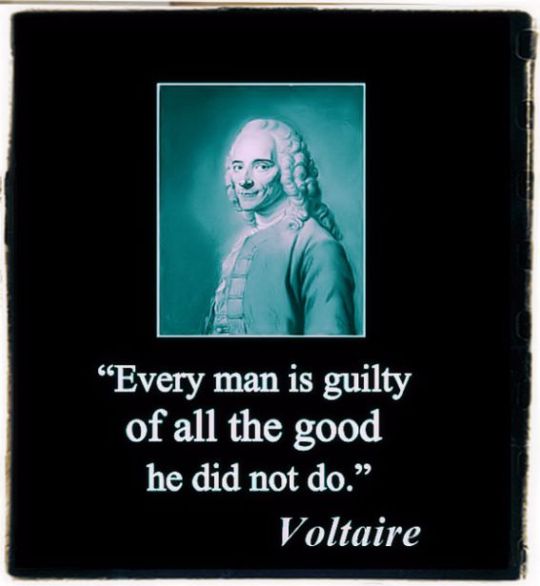
Voltaire quote Discipline is choosing between what you want now and what you want most. Abraham Lincoln The hardest thing to learn in life is which bridge to cross and which to burn. Bertrand Russell Love on one side is not enough, love is a dialogue, not a monologue. Oriana Fallaci Interacting with people that don't like you it's a fundamental process to study human stupidity. Carl William Brown The measure of a man is what he does with power. Plato No matter how you feel, get up, dress up, show up, and never give up. Regina Brett The secret of change is to focus all of your energy, not on fighting the old, but on building the new. Socrates Fashions have done more harm than revolutions. Victor Hugo A man who fears suffering is already suffering from what he fears. Montaigne From each according to their abilities, to each according to their needs. Karl Marx There is nothing in the world so much admired as a man who knows how to bear unhappiness with courage. Seneca The saddest aspect of life right now is that science gathers knowledge faster than society gathers wisdom. Isaac Asimov A man's manners are a mirror in which he shows his portrait. Goethe I was ashamed of myself when I realized life was a costume party and I attended with my real face. Franz Kafka Without love living is easy; but it's meaningless. Leo Tolstoy Nobody is going to pour truth into your brain. It's something you have to find out for yourself. Noam Chomsky Emancipate yourselves from mental slavery, none but ourselves can free our minds! Bob Marley Knowledge which is acquired under compulsion obtains no hold on the mind. Plato Those who look for the bad in people will surely find it. Lincoln It is not the man who has too little, but ht eman who craves more, that is poor. Seneca

Nietzsche quote You can’t get much done in life if you only work on days when you feel good. Jerry West The more I learn about people, the more I like my dog. Mark Twain In our society logics is intertwingled with nonsense, good things with evils ones, and most of the time you can't tell which is which, therefore there is nothing more truly realistic than stupidity. Carl William Brown Avoid doing what you would blame others for doing. Thales To destroy war, destroy patriotism. Leo Tolstoy I don’t trust anyone who’s nice to me, but rude to a waiter because they would treat me the same if I were in that position. Muhammad Ali Learn the rules like a pro, so you can break them like an artist. Pablo Picasso A gem cannot be polished without friction, nor a man perfected without trials. Seneca Nobody realizes that some people expend tremendous energy merely to be normal. Alber Camus Non serve a niente essere vivi, se bisogna lavorare. André Breton All cruelty spring from weakness. Seneca Be careful what you tolerate, you are teaching people how to treat you. Dr. Phil McGraw Better to die fighting for freedom then be a prisoner all the days of your life. Bob Marley For the Putrid President of Russia, remember Sun Tzu wise words, that is to say, the greatest victory is that which requires no battle. Carl William Brown Get busy with life's purpose, toss aside empty hopes, get active in your own rescue. Marcus Aurelius All media exist to invest our lives with artificial perceptions and arbitrary values. Marshall McLuhan Life is such a great a teacher that when we don't learn a lesson, it will repeat it. Anonymous Fishes live in the sea, as men do on land: the great ones eat up the small one. Pericles A bad system will beat a good person every time. W. Edwards Deming Our life is what our thoughts make it, used to say Marcus Aurelius, but I would add that sometimes it is even worse! Carl William Brown

Chomsky quote You have your way. I have my way. As for the right way, the correct way, and the only way, it does not exist. Friedrich Wilhelm Nietzsche Simplicity is not a mere idea. To be simple demnds a great deal of intelligence and sensitivity. Jiddu Krishnamurti People are not disturbed by things, but by the view they take of them. Epictetus Disturbance comes only from within, from our own perceptions. Marcus Aurelius All higher humor begins with ceasing to take oneself seriously. Herman Hesse The longer I live, the more convinced I am that this planet is being used by other planets as a madhouse of the universe. George Bernard Shaw The task of the modern educator is not to cut down jungles but to irrigate deserts. C.S. Lewis Education without values, as useful as it is, seems rather to make man a more clever devil. C.S. Lewis A wise man can learn more from a foolish question than a fool can learn from a wise answer. Bruce Lee We have freedom of thought, now we need thought. Carl Kraus I may not have been sure about what really did interest me, but I was absolutely sure about what didn't. Albert Camus No one is useless in this world who lightens the burdens of another. Charles Dickens Never underestimate the power of stupid people in large group. Geroge Carlin The opinion of 10,000 men is of no value if none of them knows anything about the subject. Marcus Aurelius Some rise by sin, and some by virtue fall. William Shakespeare Never depend on the admiration of others. There is no strength in it. Personal merit cannot be derived from an external source. Epictetus The old world is dying, the new world is slow to appear and in this chiaroscuro the monsters arise. Antonio Gramsci In most men, intelligence is a field which remains uncultivated for most of life. Eugène Delacroix Man is the only creature who refuses to be what he is. Albert Camus Character cannot be developed in ease and quiet. Only through experience of trial and suffering can the soul be strengthened, ambition inspired, and success achieved. Helen Keller

Karl Marx Wise men speak when they have something to say, fools speak because they have to say something. Aristotle What moves those of genius, what inspires their work is not new ideas, but their obsession with the idea that what has already been said is still not enough. Eugene Delacroix Character cannot be developed in ease and quiet. Only through experience of trial and suffering can the soul be strengthened, ambition inspired, and success achieved. Helen Keller An honest man is always a child. Socrates Open your mind before your mouth. Aristophanes Neither Christ nor Buddha nor Socrates wrote a book, for to do so is to exchange life for a logical process. William B. Yeats Why should we feel anger at the world? As if the world would notice. Marcus Aurelius Love is the state in which man sees things most decidedly as they are not. Friedrich Nietzsche Only during hard times do people come to understand how difficult it is to be master of their feelings and thoughts. Anton Chekhov Most people do not really want freedom, because freedom involves responsibility, and most people are frightened of responsibility. Sigmund Freud I no longer know if I wish to drown myself in love, wodka or the sea. Franz Kafka The first thing that reading teaches us is how to be alone. Jonathan Franzen There is no greatness where simplicity, goodness and truth are absent. Leo Tolstoy Unexpressed emotions will never die. They are buried alive and will come forth later in uglier ways. Sigmund Freud The love for all living creatures is the most noble attribute of man. Charles Darwin Experience is the hardest kind of teacher. It gives you the test first and the lesson afterward. Oscar Wilde The most common form of despair is not being who you are. Soren Kierkegaard Each of us assumes everyone else knows what he is doing. They all assume we know what we are doing. We don’t. Philip K Dick Life's tragedy is that we get old too soon and wise too late. Benjamin Franklin Nothing shows a man's character more than what he laughs at. Goethe

100 magnificent quotes to read He who knows all the answers has not been asked all the questions. Confucius Gentleness is stronger than severity, water is stronger than rock, love is stronger than force. Herman Hesse Better to die fighting for freedom then be a prisoner all the days of your life. Bob Marley Art is the most intense mode of individualism that the world has known. I am inclined to say that it is the only real mode of individualism that the world has known. Oscar Wilde Everyday is like a fashion show and the whole world is the runway. Elegance is when the inside is as beautiful as the outside. Coco Chanel There is always some madness in love. But there is also always some reason in madness. Friedrich Nietzsche Hating people is like burning down your own house to get rid of a rat. Harry Emerson Fosdick If you wish another to keep your secret, first keep it to yourself. Seneca the Younger When you have faults, do not fear to abandon them. Confucius It takes a minute to have a crush on someone, an hour to like someone, and a day to love someone... but it takes a lifetime to forget someone. Kahlil Gibran He who laughs at himself never runs out of things to laugh at. Epictetus L'amore è l'arte che non si impara mai e che si sa sempre. Benito Pérez Galdós The more we value things outside our control, the less control we have. Marcus Aurelius The more I think about it, the more I realize there is nothing more artistic than to love others. Vincent Van Gogh The greatest victory is that which requires no battle. Sun Tzu Facts or opinions which are to pass through the hands of so many, to be misconceived by folly in one, and ignorance in another, can hardly have much truth left. Jane Austen Do not spoil what you have by desiring what you have not; remember that what you now have was once among the things you only hoped for. Epicurus People may spend their whole lives climbing the ladder of success only to find, once they reach the top, that the ladder is leaning against the wrong wall. Thomas Merton For we are all divorced from life, we are all cripples, every one of us, more or less. We are so divorced from it that we feel at once a sort of loathing for real life, and so cannot bear to be reminded of it. Fyodor Dostoevsky Don’t miss these other similar posts: 100 best quotes and aphorisms 100 magnificent quotes and aphorisms 100 brilliant quotes and aphorisms 100 famous quotes and aphorisms 100 memorable quotes and aphorisms 100 top great quotes and aphorisms 100 excellent quotes and aphorisms 100 great quotes and aphorisms on Love Great and famous philosophy quotes Quotes by authors Quotes by arguments Thoughts and reflections Read the full article
4 notes
·
View notes
Photo
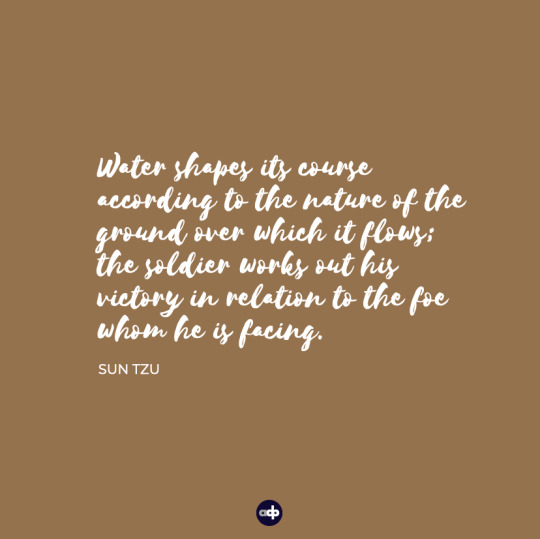
+ “Only living water satisfy the thirsty soul.” ― Lailah Gifty Akita
Streams of Living Water
I recently caught up with an old high school friend over a lunch date. This friendship has stood the test of time and one that I continue to cherish. Post the lunch I received the following SMS from this person “All I have to say is keep on keeping on. Water finds is course and you my friend have the energy of the Ganges… xxx.”
This lovely compliment reminded me of Sun Tzu’s quote from his famous book The Art of War:
“Water shapes its course according to the nature of the ground over which it flows; the soldier works out his victory in relation to the foe whom he is facing."
‘The Art of War’ is a Chinese military treatise written by Sun Tzu in the 6th century BC. It is one of the oldest and most successful books on strategy. It focuses on the use of strategy, tactics, and information to outmanoeuvre and defeat an enemy. The book also deals with issues of leadership, logistics, and the psychological aspect of warfare. It has been influential in both military and business circles and is still widely referenced today. The principles outlined in the book such as the importance of flexibility and adaptability, the value of intelligence and understanding conflict and the importance of speed, surprise, and the use of force at the right time are still relevant today.
This quote by Sun Tzu suggests that both water and soldiers must adapt to their surroundings in order to be successful. Just as water flows and shapes its course based on the terrain it is traveling over, soldiers must also adapt their strategies and tactics to the enemy they are facing. The quote highlights the value of flexibility and adaptability in achieving victory. It suggests that a successful soldier or leader must be able to adapt their approach based on the specific circumstances and the conflict they are facing, rather than relying solely on fixed plans or strategies.
In the context of everyday life, Tzu's quote about adaptability can be interpreted as a reminder to be flexible and open to change. Just as water adapts to the terrain it is flowing over, we too must be willing to adapt to the different circumstances and challenges that we face in our daily lives.
Adaptability remains a most valuable skill for personal and professional growth, as it allows us to learn and grow from new experiences and overcome adversity in our path. It also helps us to become more resourceful in the face of change, whether it be a change in our personal circumstances, at work or in our relationships. It helps us to be more open to new opportunities, rather than getting stuck in old patterns and ways of thinking.
Tzu's quote encourages us to be flexible and adaptable in our thinking and approach to life, which will help us to navigate the challenges that come our way more effectively and ultimately lead to a more fulfilling and successful life.
I often say that you are your most important relationship. The greatest challenge we take is the journey inward. And we have a responsibility to attend to the tensions of the conflict from within.
To overcome one's inner foe, or negative self-talk, my advice would be to first recognise and acknowledge the existence of these negative thoughts. It's important to understand that everyone has an inner critic to some degree, and it's a normal part of our human experience.
Once you become aware of your negative thoughts, you can start to challenge them. Ask yourself if the thoughts are based on facts or just thoughts, and if they are true or not. Often, negative thoughts are based on assumptions or past experiences, rather than reality.
Next, try to reframe your thoughts in a positive light. Instead of dwelling on negative thoughts, try to focus on the positive aspects of a situation or yourself. This will help to shift your mindset and change the way you view the world within yourself and the world around you.
Another helpful strategy is to practice some form of mindfulness. Mindfulness is the practice of being present in the moment, and it can be helpful in reducing negative self-talk and increasing self-awareness. An important deep tuning in. By becoming more aware of your thoughts and feelings, you can gain more control over them and find more peace and contentment in your life.
Lastly, it is important to take care of yourself physically and emotionally. Get enough sleep, exercise regularly, eat well and make time for relaxation, hobbies and time with friends and family. A healthy body and mind can greatly impact your mental well-being and help to reduce negative thoughts and emotions.
To overcome the inner voice conflict, it is important to recognise and acknowledge negative thoughts, challenge, and reframe them, engage in practices and habits that transform.
Living a life like water as Tzu describes, ultimately means living in a state of flow or harmony with the currents of the present moment. Just as water adapts to its environment and takes the shape of its container, we too should be open to change and be able to adapt to new situations, revealing our possibility. This includes being open to new ideas and perspectives and being willing to change our plans or approach when necessary.
Water remains a vital element of living, and it creates balance, it is essential for life, and it is a source of inspiration, healing, and tranquillity. Similarly, we should strive to create balance in our lives, and to be in harmony with ourselves and others.
So, when you turn your piercing, critical eye towards your own life—neither able to defend nor look away it is time to focus on your inner truth, your true north. If, when you are prepared to look deep within, you use words like can’t, or tomorrow or but when referring to your self-worth, because of what you don’t have, check yourself and change your mindset in this moment conflict. If you don’t, you’ll drive yourself to a nervous collapse.
Re-frame your excuses for simply being you. Transform them from impossible roadblocks, or the enemy, into challenges that encourage authentic contemplation and personal inner growth. Seeing the big picture is more than just discovering your why. Find what you want in all areas of your life and see where each of your goals fit into that framework.
Remember that a coward is a person who avoids meaningful inner truth exploration and engages in actions that simply foster fear. A courageous person is one who finds meaning by tackling it head-on and honours their truth, the truth.
In 2019 I had the pleasure of hearing American Research Professor and Author Brené Brown speak in Sydney. She spoke about the fact that sure, life can be scary and difficult at times. And that living abundantly calls each of us to have tough conversations and brave hearts with self. Nonetheless never lose sight that courage is contagious and requires us to take a leap of faith by turning up and being brave enough to abandon our amour and become the man (or woman) in the arena, a reference to this famous 1910 quote from Theodore Roosevelt:
“It is not the critic who counts; not the man who points out how the strong man stumbles, or where the doer of deeds could have done them better. The credit belongs to the man who is actually in the arena, whose face is marred by dust and sweat and blood; who strives valiantly; who errs, who comes short again and again, because there is no effort without error and shortcoming; but who does actually strive to do the deeds; who knows great enthusiasms, the great devotions; who spends himself in a worthy cause; who at the best knows in the end the triumph of high achievement, and who at the worst, if he fails, at least fails while daring greatly, so that his place shall never be with those cold and timid souls who neither know victory nor defeat.”
If you are not the hero of your own story you are missing the whole point of your humanity. Don’t want to be like someone who already exists. Enjoy your difference. Choose the courage to know that you are enough.
Triumph is about prevailing over one’s fears or foes and rejoicing, proudly, in affirming self, growth and all achievements, no matter how big or small. When you give yourself permission to act, you gain new mastery and are closer to being victorious in love, learning and life, your life.
Use your inner river flow, your Ganges energy to become a bearer of great possibility, compassion, and unconditional love. If we want to advance in our life, then, we must constantly be missionaries of love ― of self, place and the other. It is our quest and hope that we can bring positive change to the lives of the other, as well as our own. Become the face of streams of living water.
And live a life where you are prepared to always show up, face your foe, and dare greatly.
2 notes
·
View notes
Text
Lessons from Sun Tzu's Art of War 📚🌟
I came across an old book that my high school friend gave me. Sun Tzu's Art of War, an ancient Chinese military treatise, transcends the realm of warfare. I read this during high school and revisited it during the pandemic. Military commanders wrote its core principles; the book offers valuable insights applicable to various aspects of our lives. And I believe it is applicable to the current landscape that I am in. 📚
The first lesson that I have learned is "Know Yourself, Know Your Enemy." It is a famous quote that emphasizes the importance of self-awareness and understanding your opponent. In business, this translates to analyzing your strengths and weaknesses, as well as those of your competitors. 💼
Sun Tzu placed an emphasis on the strategic use of deception and maneuvering to achieve victory without bloodshed. In the business world, this could involve outsmarting competitors through innovation or negotiation, rather than resorting to aggressive tactics. 🤹♂️
He also advocates for meticulous planning and strategizing. This applies to any situation, from developing a business plan to tackling a personal project. Careful planning increases your chances of success. 📝
The battlefield is fluid, and so should your approach. Sun Tzu stresses the need to adapt tactics based on changing circumstances. In business, being flexible allows you to respond effectively to market shifts or unexpected challenges. 🔄
Leadership and discipline: An effective leader inspires and motivates their troops. Similarly, good leadership in any field fosters a strong work ethic and a culture of collaboration. The Art of War acknowledges that not all battles are worth fighting. Sometimes, the most strategic move is to disengage from a conflict or withdraw from a failing venture. 🏆
Sun Tzu's wisdom extends far beyond military strategy. By applying these principles to everyday situations, we can navigate challenges, achieve goals, and emerge victorious—not necessarily in physical combat, but in the endeavors that shape our lives. 🌟
So next time you face a challenge, remember the timeless lessons of Sun Tzu. You might just find the key to outmaneuvering your obstacles and achieving success, and I endeavor to uphold its lessons and virtues in this venture of mine. 💪
0 notes
Video
youtube
50 Famous Sun Tzu's Quotes On The Art of War You Need To Know | Sun Tzu's Lesson
Sun Tzu, a Chinese strategist of the 6th century BCE, is revered as one of history's greatest military tacticians. His masterpiece, "The Art of War," provides timeless wisdom on understanding oneself, the enemy, and the battlefield to achieve victory. Sun Tzu's teachings emphasize strategic thinking, adaptability, and resourceful planning, extending their influence beyond warfare to fields like business and politics. His profound insights into human nature and leadership have secured his position as a leading strategist in Chinese history, leaving a lasting legacy that shapes our approach to challenges and success.
📖 Highly Recommended Books to Read 📖 (Affiliate Links)
👉 Happiness Becomes You: https://amzn.to/3ram4OU
👉 Excellent Advice for Living: https://amzn.to/3NSQyxN
👉 The Creative Act: A Way of Being: https://amzn.to/3rbQJen
👉 Life Worth Living: https://amzn.to/3JB16iy
1 note
·
View note
Text
Sun Tzu Quotes: Mastering the Art of War
If you are a fan of ancient Chinese philosophy, you may have heard of Sun Tzu, a renowned military strategist who authored “The Art of War.” His book is a timeless masterpiece on military strategy and tactics that has also become a popular source of inspiration for business leaders and individuals in their everyday lives. In this article, we will explore some of the most famous Sun Tzu quotes��

View On WordPress
1 note
·
View note
Text
We're just living in an age where being aesthetic is an aesthetic
-2022 Nancy
#ifykyk#aesthetic#lifestyle#aesthetic meme#im aesthetic#or am i crazy#life is strange#gen z life#now im just having fun with the tags#wtf am i doing#yes my name tag at the end is important#just yknow#if the quote gets famous and all#i need fuckin cred man#like Sun Tzu yk#any war quote 99% times it's by him#boombayah#fuckyeah#ok im done
0 notes
Note
last year, i won a few poetry awards at my college and they let me pick out an art print with a quote from a famous author on it, and they had one with the sun tzu quote "in the midst of chaos there is also opportunity." of course i had to get that one because it made me think of techno and i told all my friends about what a funny coincidence it was, and how cause im too frugal to buy his merch it's basically discount techno merch for me haha. one of them drew a pig on it.
i was packing for college today and i found that art print again and i burst into tears and just sat down holding it to my chest. so. you're not alone in missing him today.
ohhhhh nonnie <3 :( hugs for you, thank you, it’s lovely you have a keepsake like that still, even if it’s a tough reminder. i hope you are able to cherish it and those happy memories ❤️
25 notes
·
View notes
Text
Anonymous asked: I love your long posts which make for great reading and I wish you could do more because you’ve got such a range of astonishing interests. I’m hoping because you’ve served in the military you would have studied military thinkers. Do you think the Art of War by Sun Tzu is way overrated by everyone? I studied him a bit for my masters but I still couldn’t get my head around him. Interested to know your thoughts. Thanks!
“To lift an autumn hair is no sign of great strength; to see the sun and moon is no sign of sharp sight; to hear the noise of thunder is no sign of a quick ear." - Sun Tzu's Art of War, Chapter IV - Tactical Disposition, Clause 10.
Sounds cool, doesn’t it?
But what the hell does this quote really mean? Do you know what it means? Can anyone else tell me?
Look, I enjoy a good Sun Tzu quote as the next person. Only recently I was exchanging thoughts with a fellow blogger whose studying Thucydides, Clausewitz, and Kissinger for an advanced course at the US Naval War College. Even he prefers Sun Tzu over Clausewitz. I can see why too. If you can make sense of chapter one of Clausewitz’s tome On War you deserve a Nobel Prize.
Unlike my very learned fellow blogger, there are lot of folk who don’t know Sun Tzu at all. They can quote him, but almost certainly out of context. As someone who partly grew up in the Far East and even learned Chinese and Japanese (a pitiful but functional degree of fluency) I’m embarrassed (not hard since I’m English) when I hear other Western compatriots romanticise and elevate Eastern icons to mythic status that the Chinese themselves have never done.
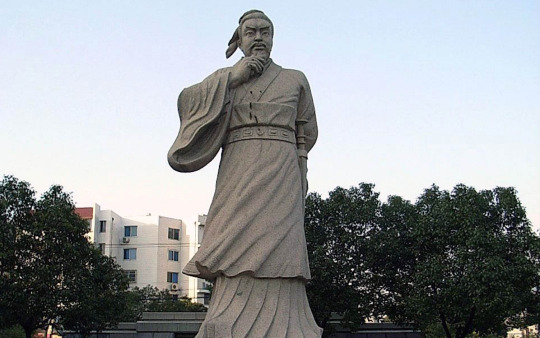
I am even more bemused than embarrassed after having hung up my military uniform for ‘civvy’ corporate clothing at how badly abused Sun Tzu’s book is in the corporate world. In my workplace I grit my teeth at corporate high flyers who mistake a balance sheet for a real battlefield by quoting Sun Tzu out of their arse, and then as self-styled ‘corporate warriors’ work themselves up in a lather of testosterone induced self-importance to crush their corporate enemies into the dust.

This is why the The Art of War by Sun Tzu has invited a jaundiced eye roll. And rightly so. I can see why many view Sun Tzu as over-rated because many easily impressed people go all woo woo over anything ancient and Eastern.
It’s become a familiar trope to say the art of ‘strategy’ as a science began 2,500 years ago with the writing of The Art of War. I would dispute this. Not that the writing of Art of War was the earliest written but whether I would call it a manual of strategy per se - more on this below in my answer. However you rate or overrate the Art of War it’s important to have perspective and remember this book is written in 512 BC. Other than the bible and some religious books, there are not many books that can survived thousands of years and still remains a steady bestseller and enjoys a wide influence in military academies and army staff colleges today and even as far into board rooms.
The question behind your question is just as interesting to me: why did Sun Tzu and his Art of War gain such traction in the West?
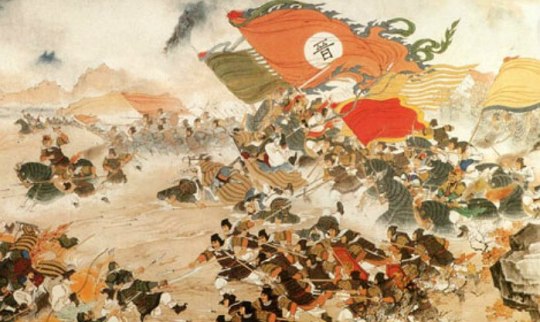
Sun Tzu (544-496 BC) wrote the original text of The Art of War shortly before 510 BC. During most of the past two thousand years, the common people in China were forbidden to read Sun Tzu's text. However, the text was preserved by China's nobility for over 2,500 years. The Chinese nobility preserved the text of The Art of War, known in Chinese as Bing-fa, even despite the famous book-burning by the first Emperor of Chi around 200 BC. The text was treasured and passed down by the Empire’s various rulers. Unfortunately, it was preserved in a variety of forms. A "complete" Chinese language version of the text wasn't available until the 1970s. Before that, there were a number of conflicting, fragmentary versions in different parts of China, passed down through 125 generations of duplication.
Indeed at the beginning of the twentieth century, there were two main textual traditions in circulation, known as the (Complete Specialist Focus) and (Military Bible) versions. There were also perhaps a dozen minor versions and both derived and unrelated works also entitled Bing-fa. Of course, every group considered (and still considers) its version the only accurate one.
When I last visited China before the Covid pandemic for work reason, I had time off to go to a couple of museums that housed the fruits of a number of archeological digs uncovering the tombs of the ancient rulers of China in which sections of Sun Tzu’s works were found. These finds have verified the historical existence of the text and the historical accuracy of various sections. I understand new finds are still being made.

The first complete, consistent Chinese version was created in Taipei in the 1970s. It was titled The Complete Version of Sun Tzu’s Art of War." It was created by the National Defence Research Investigation Office, which was a branch of Taiwan's defence department. This version compared the main textual traditions to each other and to archeological finds and compiled the most complete version possible.
This work was completed in Taiwan rather than mainland China for a number of reasons. Mainland China was still in the throws of the Maoist Cultural Revolution, which actively suppressed the study of traditional works such as Sun Tzu. The mainland had also moved to a reformed character set, while Taiwan still used the traditional character set in which the text was written. Only today is the study of Sun Tzu in mainland China growing, interestingly enough, through the translation of Sun Tzu into contemporary Mandarin. Based on the archeological sources we have today, we are reasonably certain of the historical accuracy of this compiled version that is the basis of what most people use today.
Surprisingly, the Art of War only came to light in the West around the 18th Century.
Historians believe it was first formally introduced in Europe in 1772 by the French Jesuit Joseph-Marie Amiot. It was translated at the time by the title “The thirteen articles of Sun-Tse”. Joseph-Marie Amiot (1718-1793) was not just a Jesuit priest but also an astronomer and French historian, as well as fervent missionary in China. He was one of the last survivors of the Jesuit Mission in China (he died in Beijing).

Many of the historical problems with understanding Sun Tzu's work can be trace back to its first Western translation in French. A Jesuit missionary, Father Amiot, first brought The Art of War to the West, translating it into French in 1782. Unfortunately, this translation started the tradition of mistranslating Sun Tzu's work, starting with the title, The Art of War (Art de la guerre).
This title, copied the title of a popular work by Machiavelli (a criminally underrated writer on military strategy), but it didn't reflect Sun Tzu's Bing-fa, which would be better translated as "competitive methods."
We cannot say what effect being translated by a Jesuit priest had upon the text. It was unavoidable that the work's translation reflected the military prejudices of the time era when war was both popular and Christian. It was also unavoidable that most future translations would reflect some of the first translation's prejudices. However, war was on the verge of becoming much less Christian in the West since this time was the era of the French Revolution (1789).
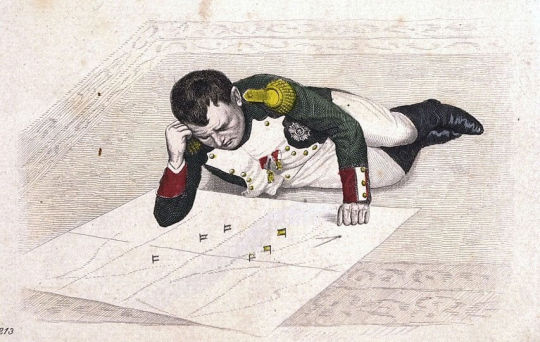
The work might well of slipped into obscurity after its initial publication, but it was discovered by a minor French military officer. After studying it, this officer rose to the head of the revolutionary French army in a surprising series of victories. The legend is that Napoleon used the work as the key to his victories in conquering all of Europe. It is said that he carried the little work with him everywhere but kept its contents secret (which would be very much in keeping with Sun Tzu's theories).
However, Napoleon must have started believing his own reviews instead of sticking with his study of Sun Tzu. His defeat at Waterloo was clearly a case of fighting on a battleground that the enemy, Wellington, knew best. Wellington’s trick at Waterloo was hiding his forces by having them lie down in the slight hollows of this hilly land. This is exactly the type of tactic Sun Tzu warns against in his discussion of terrain tactics.
After Napolean, Sun Tzu's theories made their way into western military philosophy. Many of his ideas are reflected in the ideas of work of Carl von Clausewitz. who defined military strategy as "the employment of battles to gain the end of war."
The first English translation of The Art of War is less than a hundred years old. Captain E. F. Calthrop published the first English translation in 1905. Lionel Giles, an assistant curator at the British Museum and a well-known sinologist and translator, attacked this early translation, and he published his own version in 1910. It soon began to be read alongside Clausewitz’s 8 volumes of turgid German military prose.

It wasn’t long before military thinkers were ditching Clausewitz for Sun Tzu because no one could get past Chapter One of Clausewitz’s On War. The “Clausewitz is dead, long live Sun Tzu” school was first championed by the influential British military theorist B.H. Liddell Hart in the 1920s. Basil Henry Liddell Hart (1895-1970) was a captain in the British Army. He was a very influential military theorist and historian, and author of several books such as The Future of War (1925) and Strategy (1954). Having witnessed first-hand the mechanised onslaught of the Great War, Liddell Hart sought a philosophy of warfare based in the prudent use of technology, psychology and deception - and the avoidance of the 'total war' catastrophes of preceding decades.
The main idea of Liddell Hart is to bring the set of principles of warfare in a so-called ‘indirect approach’ to the enemy. His advocacy in his scholarly work of an ‘indirect strategy’ over direct, frontal operations, was a reaction to the high casualties of the Western Front in the First World War. But his ideas were not simply about physically outmanoeuvring an opponent. Instead he pushed for a psychological scheme: to strike from unexpected directions, to generate strategic dissonance, and to induce paralysis. Hart’s well-known thoughts are “Only short-sighted soldiers underestimate the importance of psychological factors in time of war”, “Originality is the most important from all military virtues”, and “The principles of war could shortly be condensed in a single word: concentration”.
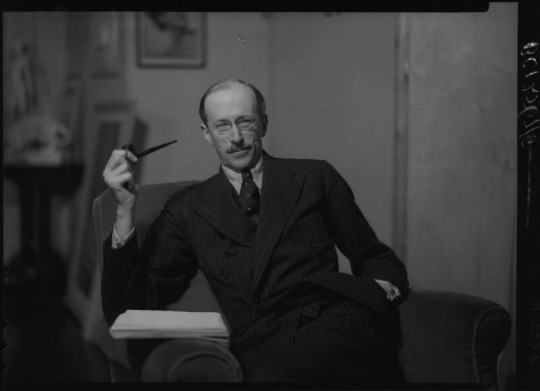
Liddell Hart believed that distilling historical insights of strategy and operations would offer the chance to avoid the costly disasters of modern war and ensure a more cost-effective route to success. He imagined technological solutions in the form of air power and mechanised land forces outflanking and shocking an enemy at the tactical level. This would be complemented by taking indirect strategic ‘ways’. Like his contemporary J.F.C. Fuller, Liddell Hart considered concentrations of air and armoured forces driving deep into enemy territory to destroy their ‘nervous system’. The psychological aspects of this were central, since acquiring an advantage demanded moves that were unexpected, with precise attacks at the most vulnerable points. As the most influential military writer of the modern age, revered and reviled by three generations of strategists, armchair and armipotent, his controversial theories of armed attack laid the foundation of the famed German Blitzkrieg.
Hart’s championing of Sun Tzu’s work as articulated through his own works got a new lease of life as the world gingerly settled into the ice bath of the Cold War. The rise of Communist China, against all the odds having defeated the well disciplined nationalist armies of Chian kai-Shek, was a wake up call for the West. There was a general befuddlement among western military analysts to explain the secret of Maoist success. There was an intellectual inquest in the 1950s and 1960s for some way to explain (and, it was hoped, learn to counter) Maoist military doctrine. Sun Tzu was seen as one of the historical and cultural sources of some particularly Chinese or Asian way of war, and his work made its way into Western discussions of counterinsurgency and asymmetric warfare.

Into the breach - and with fortuitous timing - appeared a new translation of The Art of War that was to become the defining translation right down to our day. Liddel Hart provided the foreword to Samuel Griffth’s 1963 translated copy of the Art of War. It was to quickly become a key text in US war colleges and this version is still to this day favoured by most of these institutions. We also studied Griffith’s translation at Sandhurst alongside Liddell Hart’s ideas.
There is no question that Griffith’s translation has become the standard go to translation to this day in military circles - that is until James Clavell’s more populist and looser translation came along in the 1980s. One can see why. Griffith’s translation provided a number of historical Chinese commentaries on the text. It should also be noted that Griffith’s strengths was his immense experience in the military and knowledge of military history as a brigadier general in the U.S. Marine Corps.
However, this was also his version's greatest flaw. Like many other critics I have the impression that Griffith did not really believe or understand all of Sun Tzu. Indeed he would often explain away Sun Tzu's direct statements without making it clear that this was his commentary and not what Sun Tzu wrote. The other main criticism and this one is stylistic and therefore just my opinion, Griffith was also not much of a writer. By our standards today, much of Griffith’s language can seem awkward and dated.
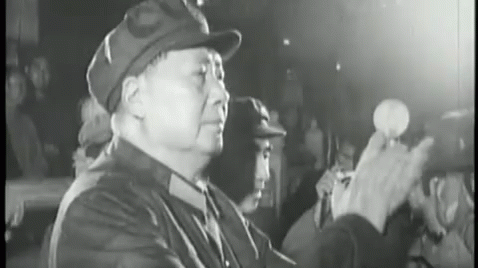
Looking back it feels ironic of the US military were wrapping their heads around Sun Tzu as way to get inside the Chinese communist mind (of Mao the military strategist especially). Unknown to them Mao had desperately tried everything to get hold of a copy of the Art of War from the Chinese Nationalists. Cambridge historian and doyenne of intelligence history, Christopher Andrew in his book The Secret World: A History of Intelligence, wrote that the theory that Sun Tzu’s The Art of War was critical to mastering contemporary warfare is propagated through the use of a tantalising anecdote: “During the civil war between Communists and the Kuomintang regime [Mao Zedong] sent aides into enemy territory to find a copy of it.” The ancient text, ostensibly, was of such vital importance that Mao was willing to risk men’s lives to obtain it, while Chiang Kai-shek vowed to protect it all costs. It’s a questionable anecdote at best as there are no historical evidence of it.

We can say that the notion that Sun Tzu’s slim treatise is considered both potent and slightly dangerous - providing the master key to unlocking victory in war through the ages - is a compelling myth that refuses to die. Mao most likely never ordered a clandestine operation to pilfer the text, nor did Chiang Kai-shek give any thought to shielding its contents from prying eyes. Both men certainly read it long before the start of their civil war, both most likely had ready access to it during the conflict, and neither man won or lost based on adherence or divergence from its teachings. But undoubtedly it set the hearts of Western military theorists aflutter in trying to unlock the secrets of Eastern military thought.
Sun Tzu and his ideas in a reincarnated form took hold of the wider public imagination in the 1980s. The 1980s was synonymous with Japan. With the perceived rise of Japan as a global economic power and the changes in post-Mao China, there was a Western (meaning American) search for more explanations. What was the secret of Asia’s rise? How were Japan and China ‘doing’ this?
In Western business circles it was for a time trendy to read it because of the perception that it was part of what made Japanese businesses so successful during the 70s and 80s. Management gurus and other corporate consultants certainly latched on to it and touted it as a way for Western businesses to re-orient their entire management and business philosophy. I don’t know if that ever actually was the case in Japan - my father who worked in both China and Japan in the corporate world at a very senior level said it wasn’t - but what is true is that in the West as the Japanese economy languished into the lost decade of the 90s so too did interest in Japanese business practices, and thus Sun Tzu.

The idea that The Art of War was a kind of how-to guide to ‘strategy’ was made especially popular by Hollywood in the 1980s. Oliver Stone’s iconic film ‘Wall Street’ seemed to typify the ‘greed is good’ New York capitalist scene of the 80s and 90s. Hollywood mirror imaged the rise of the corporate raiders and junk bond kings like Ivan Boesky and Michael Milken. Hollywood sent thousands of American businessmen off to read Sun Tzu to look for ‘leadership secrets’. This is part of a general Western fascination with ‘timeless Asian wisdom’, the American idea that ‘the mysterious East’ is possessed of secret knowledge. American and European businessmen were enamoured of the idea that “a battle is won or lost before it ever begins”, a saying that reinforced traditional American business attitudes about a winning mentality and a ‘can-do’ spirit being two keys to success.
Because Japan and China were trendy in the 1980s and 1990s it also influenced Western popular culture, not just fashion (think Kenzo) but also comic books (manga) and anime. In this Eastern friendly climate it led a number of popular fiction authors to release their ‘own’ versions of the work to capitalise on its newfound popularity. These versions were more about the pop culture of the era than Sun Tzu. Unfortunately, though popular, none of these versions took advantage of the work completed in Taiwan creating a definitive version of Sun Tzu's text by this time. These versions were based either on old English translations (the Calthorp and Giles versions) or incomplete Chinese sources. However, all of these versions remain popular today, despite their questionable sources and poor quality of translation.

In 1983, James Clavell updated The Art of War translation of Lionel Giles and published it in a very popular version. This started a very common practice in English translation: creating a ‘new’ version from other English translations instead of going back to the original source. Authors today continue to follow this practice, which only perpetuates and exaggerates the problems with early translations.
Thomas Cleary, another well-known author, did his own The Art of War translation with historical commentary in 1988. Again, his name recognition did much to increase awareness of Sun Tzu, even if his work did nothing to improve the general quality of the translation.
Looking back the whole Sun Tzu as a business model fetish in the 1980-90s was really pretty silly, rather like 80s shoulder pads. Of course, there are some similarities in leadership regardless of profession, but the basic goals and working environments of war and of business are so wildly different that applying Sun Tzu to business is superficial at best.
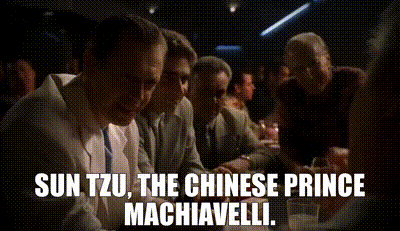
So to me the problem is not that Sun Tzu is ‘overrated’ per se, the problem is that every half baked author out there try to apply its principles to every problems that mankind have. The Art of War, as the title suggest, is not The Art of Managing your Business, the Art of Winning in Competition against your classmates, The Art of picking up Women, The Art of Living Life to the fullest. It is, and only is, The Art of War. It is ‘overrated’ only if you expect it to answer every problems in your life.
The Art of War is not the word of God. It is a war manual advocating common sense with pithy aphorisms - and a very good one.
It’s not that I think the Art of War is over-rated it’s that the more common problem is that many people vastly under-rate Sun Tzu. By misreading Sun Tzu thoughts and ideas, I believe many are in effect under-rating the problems which Sun Tzu is addressing, namely war, or the continuum of conflict resolution where divergence in interests of multiple parties extends to the possible use of lethal force on a massive scale. A lot of people trivialise this problem with idiocies like “what if someone threw a war and nobody came” (clue, they would win, then hunt down and enslave or kill everyone too foolish to contest the issue, as has happened countless times in human history) or “ban war” (said ban apparently enforced by throwing flowers at soldiers).
Understanding that war is a very real and intractable problem is necessary to fully appreciate the genius of Sun Tzu’s work, especially where it avoids fixed and easily definable tactics specific to the Warring States period and instead illustrates timeless concepts of out-thinking the enemy at every level of conflict. That the text is still mostly readily applicable or at least reasonably insightful after thousands of years is a testament to the inability of humans to push warfare beyond the fundamental aspects of conflicting interests and continuum of forcible resolution Sun Tzu addresses.

Still, the particular translation matters far less than having an appreciation that, in war, you have an active opponent who is trying to out-think and counter any moves you make, and having an appreciation of non-dualistic philosophical reasoning more characteristic of Chinese classics generally. The classic symbol of Yin-Yang (and a number of derivative versions) illustrates apparent dualism as being a part of a deeper structural unity which does not permit a fixed division into separate parts.
Hence the difficulty of applying the principles of the Art of War to artificial ideas of “winning/losing” (or war/peace, right/wrong, us/them) as categorical absolutes rather than negotiated possibilities in a continuum of desirability/costs. And it is very difficult, no one should sugar coat that. Humans sort and construct their perceptions of reality by appeal to such gross simplifications. Binary logic is an immensely powerful tool in many areas because it leverages the ability to simplify complexity and then build valid inferences based on fixed premises. But at some point you have to go beyond that to have a more fluid response to reality as it is. Which Sun Tzu does for the reality of war.
I would recommend anyone to read it. At the end of the day it’s a book of highly general aphorisms that effectively synopsise the essential insights that apply to all kinds of human conflicts. Turning an enemy's flank has the exact same effect in 2500 B.C. and in 2000 C.E. and it has the same effect in the boardroom, or public market as it does on the battlefield. Deception and intelligence are still used in exactly the same way, whether conquering foreign lands, or stealing market share from a competitor. It's a book about common sense; but common sense must seem profound to those who have none.
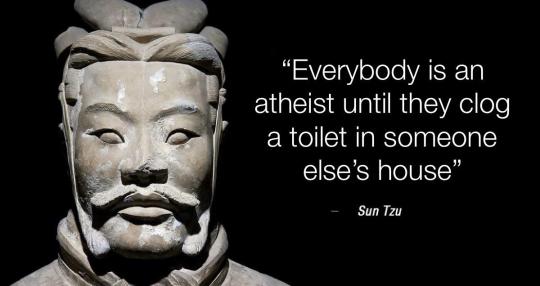
Overall, I think Sun Tzu’s Art of War is a worthy read and not overrated because in our society of over educated achievers, common sense is in as short of supply as it has ever been; if this book can provide the meaningful framework for educating very bright people in down to earth common sense, that can only be a good thing.
The value of the book then is to drive home the fact that, in human conflict, there really is Nothing New Under the Sun (Tzu).
Pardon the pun and thanks for your question.
#question#ask#sun tzu#military history#book#philosophy#china#culture#the art of war#war#military#warfare#strategy#society#literature#america#britain#japan
568 notes
·
View notes